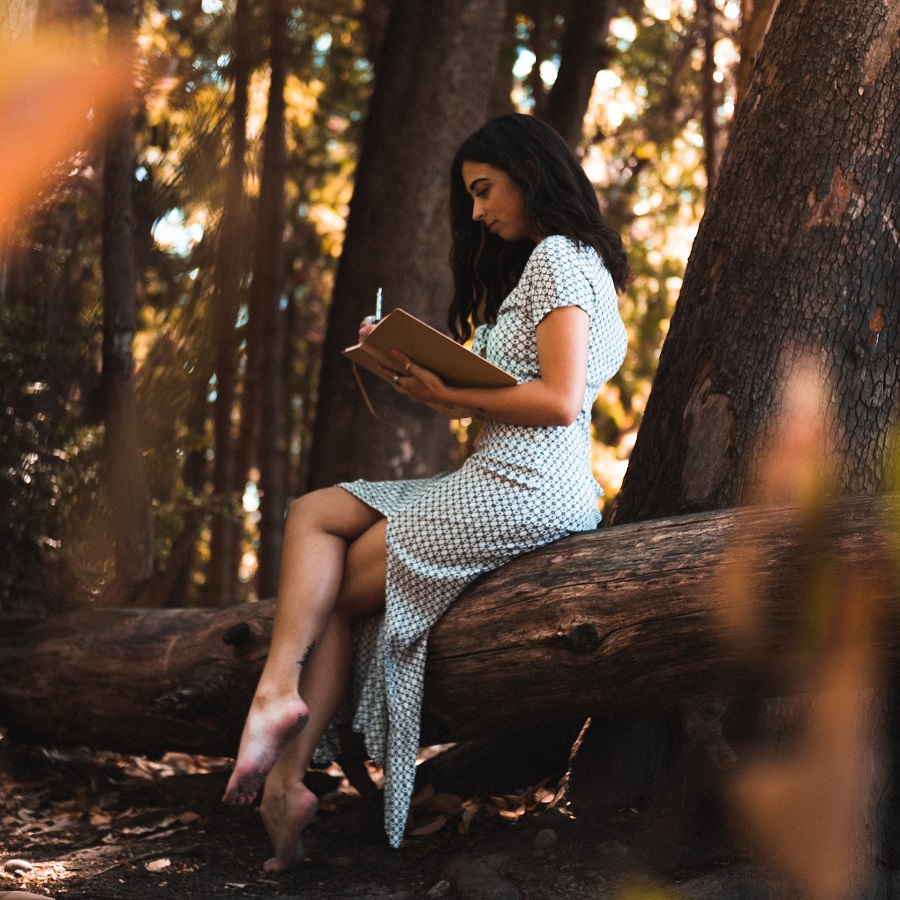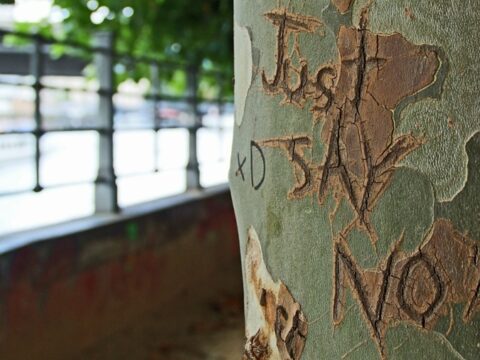As a writer, I field a lot of questions about writing. Over the years I’ve learned that a staggering number of people secretly want to write a book. Some surveys indicate as many as 81% of us want to write a novel someday, probably because most of us have read great books. But while tons of people have started writing books, how many of us actually finish them? That’s a rarer phenomenon. And I can attest that finishing my first book was no small feat.
Currently I have six finished books under my belt and two more in the works, but I wasn’t always a writer who finished things. In fact, I wasn’t even a writer who wrote regularly. When I look back at my journey of finishing my first book, I realize I had to make some big changes to my habits and my mindset for that goal to happen . . .
Always Starting—Never Finishing
I’ve mentioned many times on this blog that I knew from age six that I wanted to be a writer. But that doesn’t mean I did much writing in my early years. I did fill some spiral-bound notebooks with animal stories and mysteries. And I filled the first three pages of dozens—and I mean dozens—of pretty journals with cats on the covers.
But aside from these opening chapters, I spent most of my time dreaming about writing and cataloging all my potential story ideas I hoped to write. Someday. When I was older and magically knew how to write better. I still have reams of notebooks filled with doodles, sketches, character names, conversations, and world building details from my preteen self. But aside from the short stories I wrote for school assignments and the occasional poem, I never finished anything.
I was what I fondly call “the non-writing writer.” A young person who has all the character qualities and burning desire to become a full-time author if she’d ever learn how to sit down and actually write something. I was a raging perfectionist at a super young age, so I wasn’t okay with writing an actual first draft. I wanted to write something GOOD. Something that resembled all the novels I read—all written by full-grown adults who’d penned millions of words in their time. But nine-year-old me didn’t pick up on that irony.

A Couple Close Calls
The summer I turned thirteen, I had a sudden desperation to create. I’d thought up at least four series in my head, all of which were too special and too daunting to actually write. But I so badly wanted to write something. So I took the plunge and started a delightful standalone novel about rabbits. It was basically Beatrix Potter meets Lucy Maud Montgomery with lots of punchy dialog, witty comedy, and a dash of romance. Once I got past the second chapter, I was hooked.
I spent the whole summer cranking out pages of this exciting new book and loving every second of working on it. Around the time I reached the book’s climax, my productivity screeched to a halt when school started again. And what could have become my first book was lost in the Sands of Time thanks to school stress and homework.
A year later when I reopened the file to finish my beloved rabbit story, just to say that I’d finished something, the spark was gone. Frankly I couldn’t even remember how I planned to finish the book. I did work on a few projects that summer, including a medieval play that I wrote with friends. That one actually did get finished, but it was a script, not prose, and significantly shorter than a traditional novel. My dream of finishing my first book was still just a dream . . .
Then a Writing Group Changed Everything
A decade later—yeah, you read that right—I STILL hadn’t finished my first book! However, I was starting to take writing seriously. I’d just completed my bachelor’s degree in English with an emphasis in editing, and I took several fiction-writing classes that reminded me just how badly I wanted to be a writer. One that does more than think about writing.

Shortly after I graduated, I moved into my first non-college-town apartment and had the good fortune of living with an old friend who’s also a writer. We spent many nights talking about how much we both wanted to finish a book and had just never done it. Then my friend came up with a genius idea: let’s start a writing group and take this goal by the horns. If four of us are all working toward the same goal, wouldn’t that make it easier? It seemed worth a shot.
So we recruited two other friends and kicked off our new writing group at our local Barnes & Noble coffee shop. Cliché perhaps, but it felt momentous. I’d finally taken the first of many steps to finishing my first book.
Some Things Definitely Needed to Change
I already knew that I was an architect writer who spent literal decades planning out series that never happened. The one time I’d made significant progress on a book was that rabbit story when I was thirteen. What made that project different? Well, firstly the book was a new idea. It was a fun standalone that I hadn’t spent years planning, and therefore it didn’t hold the crippling gravitas of a story I was afraid of destroying. I knew I needed to pick a similar project.
It just so happened that I’d dreamed up a Beauty and the Beast retelling the previous year that was sufficiently exciting to me while also being fairly unplanned. This seemed like the perfect project to tackle with the sole purpose of finishing a manuscript. It was fun, romantic, and dark. Best of all, the characters were larger than life for me, which is always a must for me to dive into a story. Only this time I was going to actually write the thing instead of strapping it to a torture device and planning it out until it died. None of that please.
Most Importantly, I Gave Myself Permission to Fail
I firmly believe this is how I finished my first book. I made writing progress my one and only goal. Not the quality. Not the satisfaction of never making a mistake. Just writing for writing’s sake, even if the book turned out terrible. Because that’s what I had to do to get a book off the ground.
This is also the point in my career when I started writing a “clips document” alongside my manuscript. This is basically a journal where I write stream-of-consciousness style about the difficulties that crop up while writing, snippets of dialogue I don’t want to forget, and research to save for later. My clips doc was a breakthrough for me because it took the edge off of writing the actual book and make the whole process feel like an experiment. NOT a high-stress, high-anxiety, don’t-mess-this-up masterpiece in the making.
Combining all of this with a daily writing habit allowed me to crank out more word count than I’d ever produced. And with a writing group to cheer me on chapter by chapter, I was truly motivated to keep going.

For the Record, the Book Was Absolutely Terrible
Let’s not obscure the fact that my first book was a train wreck. The tome was over 350,000 words long (longer than any Harry Potter book), and its pacing dragged worse than a dead corpse emerging from a grave. I didn’t know the first thing about pacing a story well, so instead of plotting which scenes to write, I wrote all of them. Every tiny interaction, every meal, every flirtatious encounter, every cheap jump scare I could think of. The story was a combination of horror and romance, and I didn’t scrimp on any opportunities to explore both elements.
But my first book isn’t without its charms. The love story is particularly good, and when I go back and read this project, I have to admit that the actual syntax of the writing and the emotional center of the book is pretty spectacular. That’s the great thing about writing a book you’re genuinely excited about. It reflects the writer’s personality in the most authentic, undeniable way you can imagine. And you know what? I had fun writing that chunky, train wrecky project. I loved writing it, and my writing group loved reading it, bless them.
Somehow the Process Flew Past Before I Even Knew What Happened
Once I hit my stride in the manuscript, there was no stopping me. With each passing month, I was hitting scenes in the story that I’d dreamed up nearly a year before. It’s both thrilling and spooky to realize just how far you’re getting in a book, and once my climax was approaching, I started losing my nerve. Could I do this? Could I really finish my first book and bring this story home?!
Well . . . I wouldn’t say I stuck the landing exactly, but I certainly finished. Sadly the experience wasn’t the satisfying fanfare that I had pictured. My climax was only ten pages long, and I floundered through my two-chapter denouement that I hadn’t thought through at all. Then the story was over. It felt anticlimactic for me in the worst way, but my writing group seemed satisfied to reach the conclusion and shared some really helpful feedback on how to iron out the creases in the final chapters.
Then it hit me: I had done it. I’d finished my first book ever. And honestly I felt terrible.

The After-Book Slump Is SO Real
I was not prepared for the dreadful hangover of purposelessness that can hit after you finish a manuscript. In my case, it hit particularly hard because I felt so disappointed with how badly I’d ended my book. After eighteen months of writing, I’d tripped right at the end. As a result, finishing my book didn’t feel like the huge life accomplishment that it was. It felt like a bad breakup with a crumby boyfriend. I hated that book and was RELIEVED to be done with it, and yet I pined for the days when things were beautiful between us. It was peak emotional drama.
But things didn’t stay bad. After a couple weeks of wallowing, I revisited the end of my book to incorporate some feedback and add a really great epilogue for a possible sequel. Doing so gave me just enough closure to lay the manuscript to rest. I did write down my ideas for turning the book into a trilogy, and I have the outline of how I would rewrite the book into something publishable now that I have some pacing skills. But currently I have no plans to revisit my first book. At least for now.
These Days I Think About My First Book with Gratitude
Writing that thing was a wild ride, but finishing my first book was my first legitimate step in my writing career. It transformed me from a daydreaming non-writing writer into an unpublished author who knew how to produce. Within months of finishing that book, I started another one. And finished it. Then I went on to write a four-book series, finishing each installment. I haven’t stopped writing since.

I think the big takeaway of my first book journey is that everyone has to start somewhere. All writers have to figure out what motivates them to overcome excuses and prioritize their craft. Once you do those things, you too will be capable of finishing not just one book, but many. And looking back at a pattern of completing what you started is the best feeling there is. ❧




